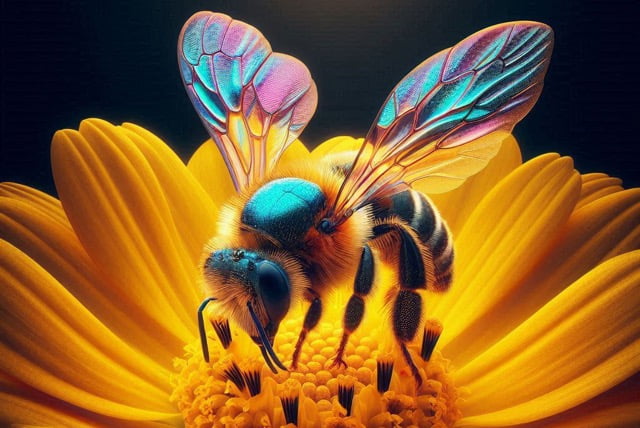In a surprising twist, researchers have uncovered an unforeseen consequence of a vaccine developed to protect bees. While initially aimed at safeguarding bee populations from devastating diseases, the inoculation appears to be altering the very fabric of ecosystems by affecting plant diversity.
The vaccine, which was developed in response to the alarming decline in global bee populations, was designed to combat various pathogens responsible for diseases like American foulbrood and European foulbrood. However, a study published in the Journal of Ecological Science suggests that its impact extends beyond bees, influencing the dynamics of plant communities.
More Read
More Read
Dr. Emily Parker, lead author of the study and a biologist at the Bee Research Institute, explained the unexpected findings.
Our research indicates that the bee vaccine, while effective in bolstering bee immunity, is also inadvertently affecting the interactions between plants and pollinators
The study, conducted over three years across multiple ecosystems, found that areas where bees had been vaccinated exhibited shifts in plant diversity. Specifically, researchers observed a decline in the prevalence of certain flowering plant species, particularly those reliant on bee pollination. Meanwhile, non-bee-pollinated plants showed a slight increase in abundance.
“We were taken aback by the magnitude of the changes we observed,” remarked Dr. Parker. “It underscores the interconnectedness of species within ecosystems and highlights the importance of considering broader ecological implications when implementing conservation strategies.“
The mechanism behind this phenomenon remains under investigation, but scientists speculate that changes in bee behavior and foraging patterns following vaccination could be contributing factors. Additionally, alterations in the composition of bee populations, as vaccinated individuals potentially outcompete their unvaccinated counterparts, may play a role.
While the findings raise questions about the unintended consequences of well-intentioned conservation efforts, researchers emphasize the need for a balanced approach. “Protecting bee populations is critical for maintaining ecosystem stability and securing global food supplies,” noted Dr. Parker. “However, we must remain vigilant and continuously evaluate the broader impacts of our interventions.”
The study underscores the complex interplay between species within ecosystems and serves as a reminder of the intricate web of interactions that underpin biodiversity. Moving forward, scientists advocate for integrated approaches that consider the multifaceted nature of ecological systems to ensure the long-term health and resilience of our planet’s ecosystems.
As efforts to mitigate the decline of bee populations continue, researchers emphasize the importance of adaptive management strategies that account for the unforeseen consequences of conservation initiatives. In doing so, they hope to strike a delicate balance between safeguarding threatened species and preserving the intricate balance of nature.












